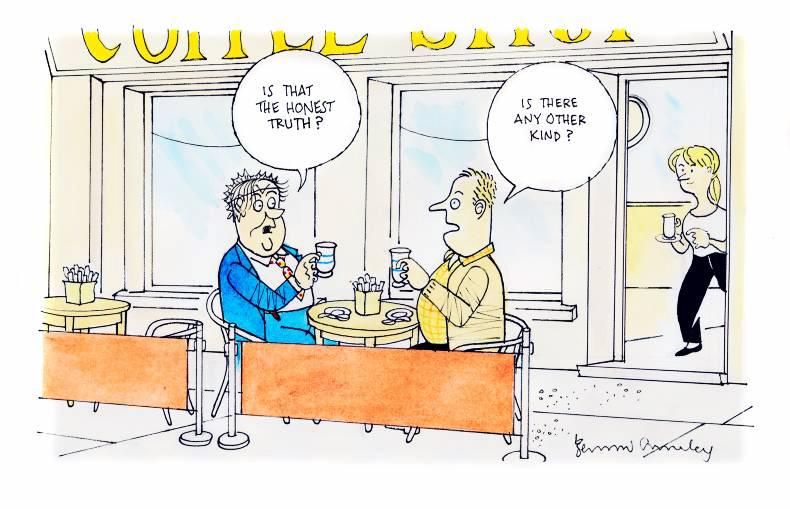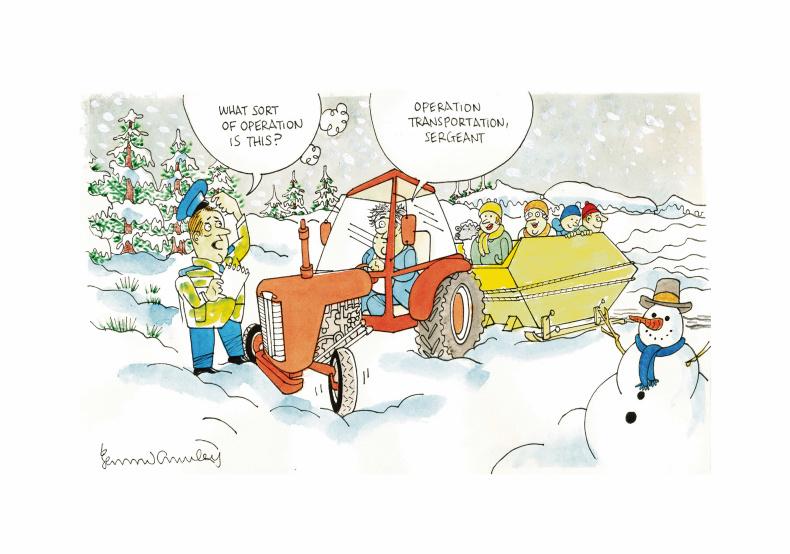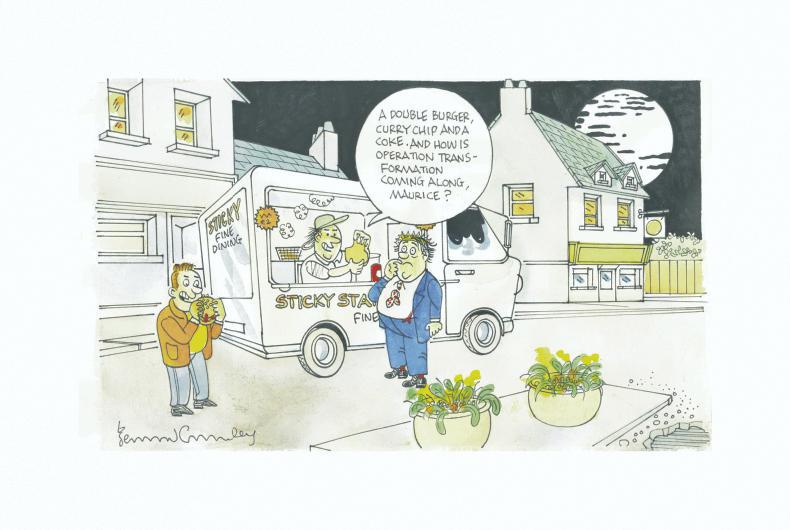The truth is a quare thing and people have quare relationships with it. From the man who finds it impossible to say a true word, to the woman who couldn’t tell a lie to save her life. There’s a whole range of reality between the downright lie and the total truth. We spend most of our lives somewhere in the middle. I hear myself telling bits of the truth mixed with bits of white lies every day.
“I was just about to phone you this minute,” I’ll say when answering a call from someone I’ve been trying to avoid. I might have had the intention of calling the person, but not anytime soon.
Telling the truth is a tricky business. Sometimes it’s the last thing people want, or indeed need, to hear and yet we are told it’s always the best policy. We give out about spin doctors, PR gurus, advertisers and politicians and their careless relationship with the truth, but, whether we admit it or not, most of us are dab hands at massaging the facts.
Did you ever meet a smoker who was honest about how many fags a day he or she smoked? How many times have you met a fella with a hangover who’ll be bamboozled as to why he’s in such pain given that he “only had a couple of pints”, when in fact he consumed a couple of gallons.
And which of us will tell someone they’ve put on a few pounds? We’ll probably tell a complete lie and say: “The bit of weight suits you.”
But the next person we meet will be told the truth about the last person we met.
“I just bumped into Mick. Jaysus, he’s as big as two, he’d want to shove back from the table before he bursts.”
The same is true when it comes to clothes. Of course, one man will never talk to another man about clothes. If Cantwell walked into the pub in a new suit he’d be asked if ‘twas a wedding or a funeral he was going to. It would never cross my mind to say: “That shade of blue suits you Tom and the pin-stripe is lovely.”
No man would say a thing like that to another.
At the risk of being sexist, women have no bother in commenting about one another’s clothes, and most certainly the truth is the first to get crushed under the weight of the compliments.
A stream of positive, indeed glowing, remarks will fly around about colour, shape and size, and while there is no doubt that women will genuinely admire the good garment, the problem is they can be equally glowing about the poor garment or the poor choice of garment without meaning a word of it.
I’ve heard them around the Mother’s table the day after a wedding and in fairness they’re always quick to appreciate the lovely thing, but they come into their own when it comes to tearing shreds off the things they didn’t like.
“Did you see what the mother of the bride was wearing? Jesus, Mary and Joseph, who let her out in that. Did she pull the curtains off the sittin’ room window as she ran out the door?”
“Well that’s strange, I heard you telling her she looked beautiful.”
“And she herself did look beautiful, she’s a fine looking woman, but her clothes were awful. I wasn’t going to tell her that.”
And that’s the important bit, you have to be careful with the truth, too much of it can do damage.
There’s no better man than my local publican, Tom Walshe, to dish it out in what he calls “manageable doses”. For instance, occasionally a sing-song will happen in the pub and, naturally, some singers are better than others. There’s one particular warbler that descends on us from Shronefodda, who imagines he’s a gift from the gods when it comes to singing a ballad. He has a great welcome for himself, but his talent comes a poor second to his notions. Superquinn says he has a voice is like a foghorn with a seagull stuck in its gullet.
Nevertheless, the Shronefodda balladeer gets the same compliment from Tom Walshe every time he makes a vocal contribution.
“Great song, great song, good man, good man.”
One night, Walshe was challenged by Pa Cantillon after the aforementioned warbler had made a total dog’s dinner of the Rocks of Bawn.
“Why can’t you tell him the truth?” asked Cantillon.
“The hoor sounded like he was chewin’ the feckin’ rocks of Bawn.”
“You might notice, Mr Cantillon,” said Walshe. “That I complimented the song, not the singing.”
“But you said good man, good man,” said Cantillon.
“He’s a good man to drink a pint and a great man to pay for it,” said Walshe. “That’s truth enough for me.”









SHARING OPTIONS